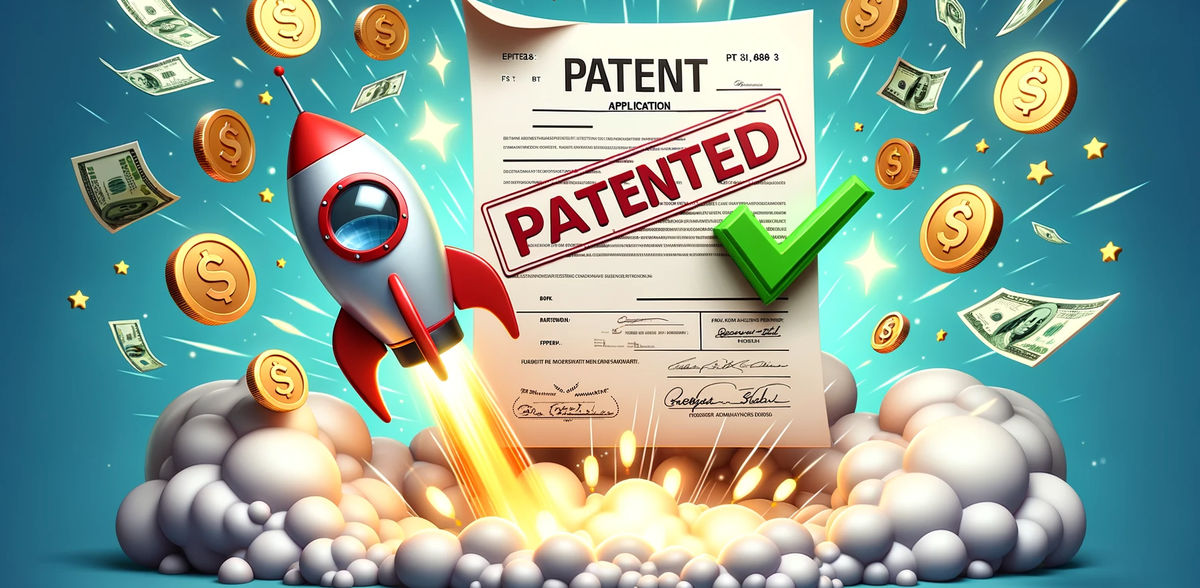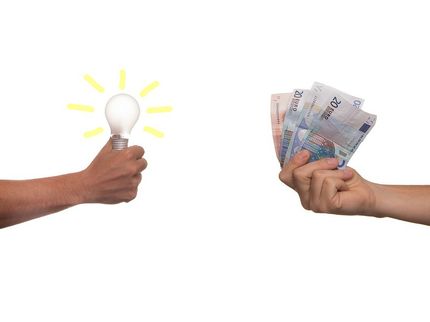Startups with patents and trade marks are 10 times more successful in securing funding
Biotechnology sector leads in the use of patents and trade marks, with nearly half of the sector’s startups seeking these essential rights
the European Patent Office (EPO) and the European Union Intellectual Property Office (EUIPO) have published a new joint study highlighting how much patents and trade marks can boost the success of European startups. The report shows that, on average, startups that possess these two types of intellectual property (IP) rights during their initial seed or early growth stages are up to 10.2 times more likely to successfully secure funding.
On average, 29% of European starts-ups have filed IP rights, with important differences between industry sectors. Biotechnology is by far the most IP-intensive sector, with nearly half of start-ups using patents or registered trade marks. Other IP-intensive sectors include science and engineering (with 25% of patent users and 38% of trade mark users), health care (20% of patent users and 40% of trade mark users) and manufacturing (20% of patent users and 36% of trade mark users).
The ownership of European patents and trade marks is associated with an even higher advantage, with a rate of securing early-stage funding exceeding five times that of national IP rights (6.1 times more likely for trade marks and 5.3 for patents). The so-called “deep tech” startups have particular challenges when developing breakthrough technologies, as they require large investments and long lead times. Such startups can benefit especially from patents and trade marks to attract “patient” investors.
The President of the European Patent Office, António Campinos, said: “Startups are dynamic catalysts for innovation and economic growth. They hold the potential to develop new solutions that can tackle society’s most pressing challenges and deliver a more sustainable future. So we must find ways to support our startups further. This year the EPO has made great progress with the introduction of the Unitary Patent, but now our new Observatory on Patents and Technology will introduce a ground-breaking tool, the EPO Deep Tech Finder, enabling potential investors to identify and assess startups with pioneering and promising new technologies. We’re matching creative sparks with those who have the resources to power the engine of innovation - this could be a win for all.”
The Executive Director of the European Union Intellectual Property Office, João Negrão, said: “Intangible assets represent the vast majority of the value of a business today, and formal intellectual property rights, such as trade marks, are not only legal safeguards for investment in intangibles, but the key to securing financing and collaborations. This is especially important for newly started, innovative companies, who typically have few assets at the initial stage aside from their intellectual capital. Today´s study shows that 27% of the start-ups analysed had applied for a trade mark, more than any other IP right. This is why the support that we can give them is so important, not only to take the first step and register their IP right – and here the EU Commission´s SME Fund implemented by the EUIPO together with EU national and regional IP Offices is very relevant – but also further down the line with initiatives such as IP valuation and IP Scan enforcement. We see however that Europe lags behind other regions in the world when it comes to financing starts-ups and we must step-up efforts to enhance IP as tool for access to finance, growth and sustainable development for EU businesses, and specially SMEs, so our innovative start-ups can thrive."
IP ownership among different countries
There is significant variation in the use of IP rights among European countries. Finland and France have the highest percentage of startups with an IP filing at 42% each. Startups based in Germany (40%), Austria (40%), Italy (39%), Norway (37%), Sweden (34%), Denmark (34%), Switzerland (32%) and the Czech Republic (31%) apply for more IP rights on average. Companies from those countries are also the most likely to file trade mark and patent applications, and to bundle the two IP rights. This is especially true for startups from Austria, Switzerland, France and the Nordic countries.
IP ownership among different industries
In terms of sectors, biotechnology is the most intensive for both patents and trade marks, with almost half of Europe’s biotech start-ups applying for one or both of the IP rights. 48% of biotech startups have filed for a patent and 47% have applied for a trade mark. This is the sector with the highest percentage of startups owning both a patent and a trade mark at 31%. The sector with the second highest proportion of startups owning IP rights is science and engineering (47%), with 38% of the companies applying for a trade mark and 25% filing a patent. The results are similar in healthcare and manufacturing, having 40% of companies in each sector registering for either a patent or a trade mark.
While all products and services can be branded, and those brands can be protected by trade mark registration, there are many sectors, particularly in services, whose innovations are not patentable. Following the aforementioned sectors, other industries with an intensive use of patents include media and entertainment (21%), information technology (20%), energy (19%), natural resources (18%) and sustainability (17%). Regarding trade marks, other industries with highly intensive use are sustainability (37%), energy (36%), artificial intelligence (36%), agriculture and farming (36%) and natural resources (35%).
Underpinning the modern economy
The startups ecosystem has experienced exponential growth in Europe in recent years. According to the OECD’s Financing SMEs and Entrepreneurs 2023 Scoreboard, all economies registered a significant rise in venture capital (VC) activity in the wake of the COVID-19 crisis, with the median rising 58.6% in 2021 (versus a growth of 4.18% experienced in 2020). However, national venture capital associations reported in the same report that the increase in the amount of VC investment has been especially remarkable in late stages and consolidated companies, but less strong in the seed and early stages.
Indeed, a draft report from the European Parliament’s Committee on Industry, Research and Energy published in September 2023 highlighted that access to capital remains a significant hurdle for start-ups and scale-ups. Many struggle to secure early-stage investments, particularly risk capital and venture capital, which are crucial for scaling their operations, developing products, and entering new markets. Various EU initiatives have already been launched to address these challenges, including the creation of the European Innovation Council (EIC) as a one-stop-shop to identify, develop and scale up emerging deep technologies and breakthrough innovations.
In the intricate landscape of startup enterprises, patents and trade marks emerge as vital instruments for competitiveness. Patents bestow upon these emerging ventures a key right: the power to restrict others from appropriating their pioneering technologies. This not only safeguards their innovative edge but also propels them into a position of strategic advantage within the market. Trade marks serve as a legal bastion, fortifying investments in intangible assets. These distinctive symbols or names, when legally protected, become an effective shield, protecting a startup's brand identity from infringement.
Other news from the department business & finance
Most read news
More news from our other portals
Something is happening in the chemical industry ...
This is what true pioneering spirit looks like: Plenty of innovative start-ups are bringing fresh ideas, lifeblood and entrepreneurial spirit to change tomorrow's world for the better. Immerse yourself in the world of these young companies and take the opportunity to get in touch with the founders.




























































